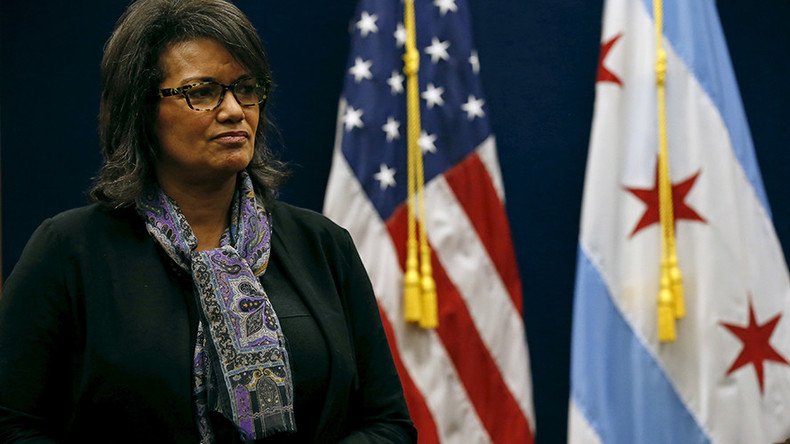Chicago police review board has no record of 6 officer-involved shootings

Chicago’s inspector general has discovered that reports by the Independent Police Review Authority overlooked six police shootings and 14 incidents of Taser use.
It’s been a bad week for the IPRA, according to some, and just a bad agency to others.
Inspector General Joseph Ferguson found that in the agency’s most recent quarterly report, they had no evidence showing they looked into six shootings by police officers, which did not hit anyone.
The agency also had no records regarding 14 incidents of police using Tasers between 2007 and 2014, the Chicago Tribune reported.
#Chicago police body cameras fail to record killing of unarmed black teenhttps://t.co/fT0xMNJscepic.twitter.com/u0U37zkRVM
— RT America (@RT_America) August 2, 2016
Ferguson stressed the importance of this saying in a report, “during this historic moment of transformation of police oversight in Chicago, the city should recognize that use-of-force reporting is a crucial tool for meaningful transparency, accountability, and the fostering of public trust in the Police Department and the agency responsible for police oversight.”
Ferguson noted that it was not clear if IPRA’s record keeping was responsible for the Chicago Police Department failure to notify the IPRA of the incidents.
Head of IPRA Sharon Fairley defended the agency, claiming in a letter to Ferguson that her department had no records to prove that they were notified of the shootings by the police department.
However, even Fairley had to acknowledge that the department failed to assess whether their procedure for ensuring that the police gave them accurate information was lacking. She wrote that the IPRA was striving to “ensure that we have the appropriate personnel and technological resources to address our data management and reporting needs going forward.”
Fairley continued to suggest that it was the police department that dropped the ball by claiming that the IPRA found inaccuracies in officers’ reports on use of force.
Agency spokeswoman Mia Sissac acknowledged the six shootings and explained that three were in 2007, one in 2009 and that the other two were in 2011.
Fairley responded by saying that while the city needs to improve the details provided on use of force, she largely agreed with Ferguson’s findings and said some reforms are already in the works.
This is just the most recent of the agency’s problems. The agency faced massive criticisms following the shooting of Laquan McDonald by Jason Van Dyke, an officer who had 20 complaints of excessive force, yet received no disciplinary actions.
On Monday, an attorney for the IPRA was forced to resign after she was found to be having inappropriate conversations with a gang member through Twitter direct messages. The communication between chief investigative law officer Lindsay Wilson Gowin and the unnamed gang member were acceptable at the beginning, WBEZ Chicago reported.
The man sent her a video of a plainclothes officer frisking men in front of an unmarked SUV and accused the officer of “extorting ‘crack and cash’ from the group ‘at least three times a week,’” WBEZ reported.
Chicago cops involved in fatal shooting ‘relieved of police powers’https://t.co/rjZX01imeFpic.twitter.com/RYoaBlN2Ks
— RT America (@RT_America) July 30, 2016
Gowin responded by instructing him to get his name and badge number, promising to have the officer fired. She turned in screenshots of the conversation between herself and the gang member.
However, she inquired about tensions between various gang conflicts, going as far as to ask, “why has no one taken out [redacted name]’s worthless ass so far?”
Gowin also misrepresented the IPRA’s abilities by claiming they could “put a team out there if someone could tell us where to position ourselves to see but not be seen.”
Sissac explained that IPRA would not do this, as they are not authorized to investigate corruption charge or to even do surveillance.
Fairley, sure to be having a busy week, issued a statement reading, “as an agency we are committed to doing our work with integrity, transparency, independence and timeliness.”
“We expect all of our employees to exercise good judgment and conduct themselves in a manner that is consistent with these goals,” he added.












